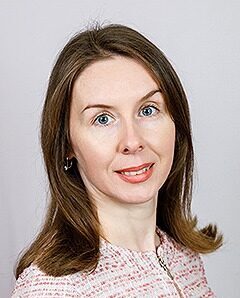Medicine (master), 2020
| Code and name of the specialty | 222 Medicine |
| Educational degree | Master |
| Structural subdivision | medical faculty ІІ |
| Graduation department | Department of Internal Medicine No. 2, Clinical Immunology and Allergology named after Academician L.T. Malaya |
| Head of the Educational Programme | Ryndina Nataliya Gennadiivna |
| Implemented in action: | from 01.09.2020 |
Discussion of the educational program
We invite employers, labor market representatives, graduates and all stakeholders to discuss projects of educational programs in order to confirm their relevance, compliance with learning outcomes (knowledge, skills, competencies) to the needs of the modern labor market. You can send your suggestions and comments to the mailbox or fill out the online form

Ryndina Nataliya Gennadiivna
Doctor of Medical Science, Professor of the Department of Internal Medicine No. 2, Clinical Immunology and Allergology named after Academician L.T. Malaya
nh.ryndina@knmu.edu.ua
- General information
- Purpose of the Educational Programme
- Characteristic of the Educational Programme
- Eligibility of the graduates for employment and further studies
- Teaching and assessment
- Programme competences
- Programme results of training (PRT)
- Educational components
- Provision of resources for realization of the Programme
- Academic mobility
